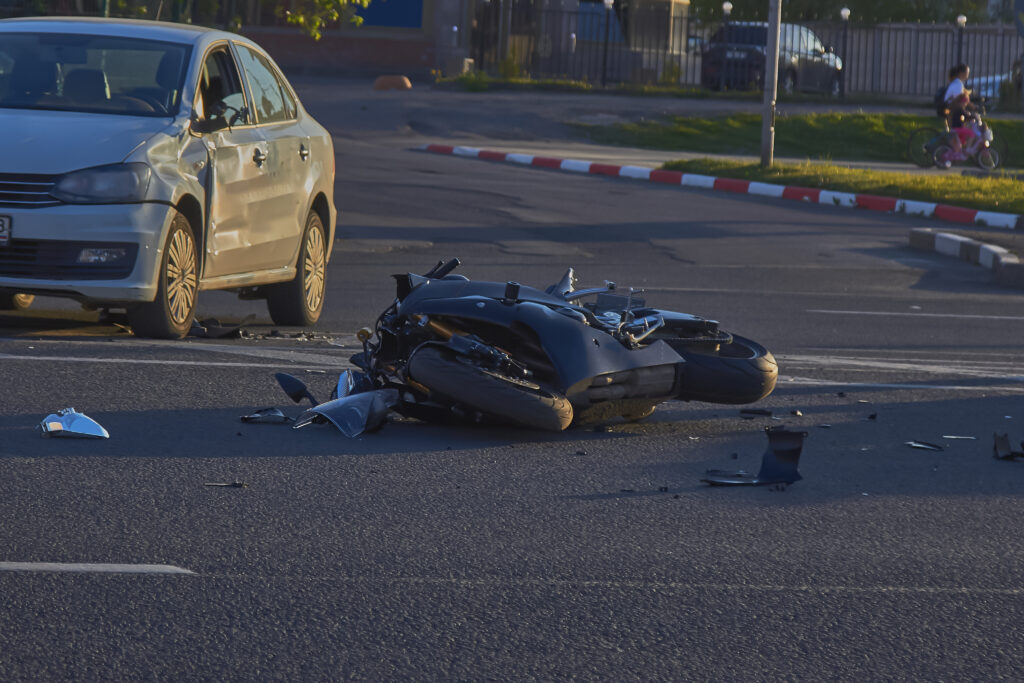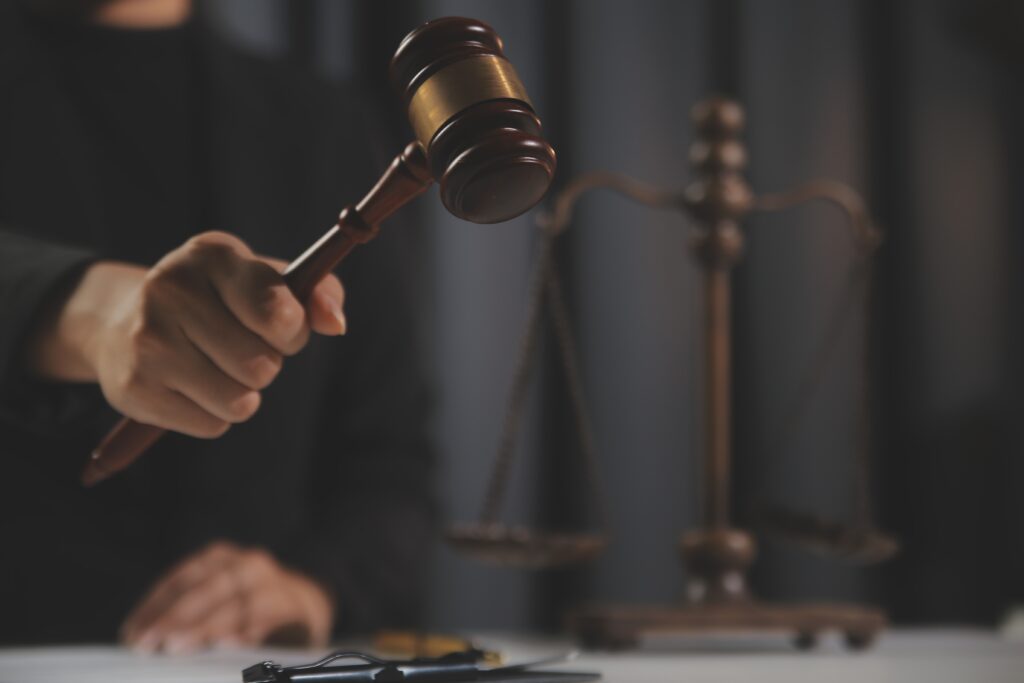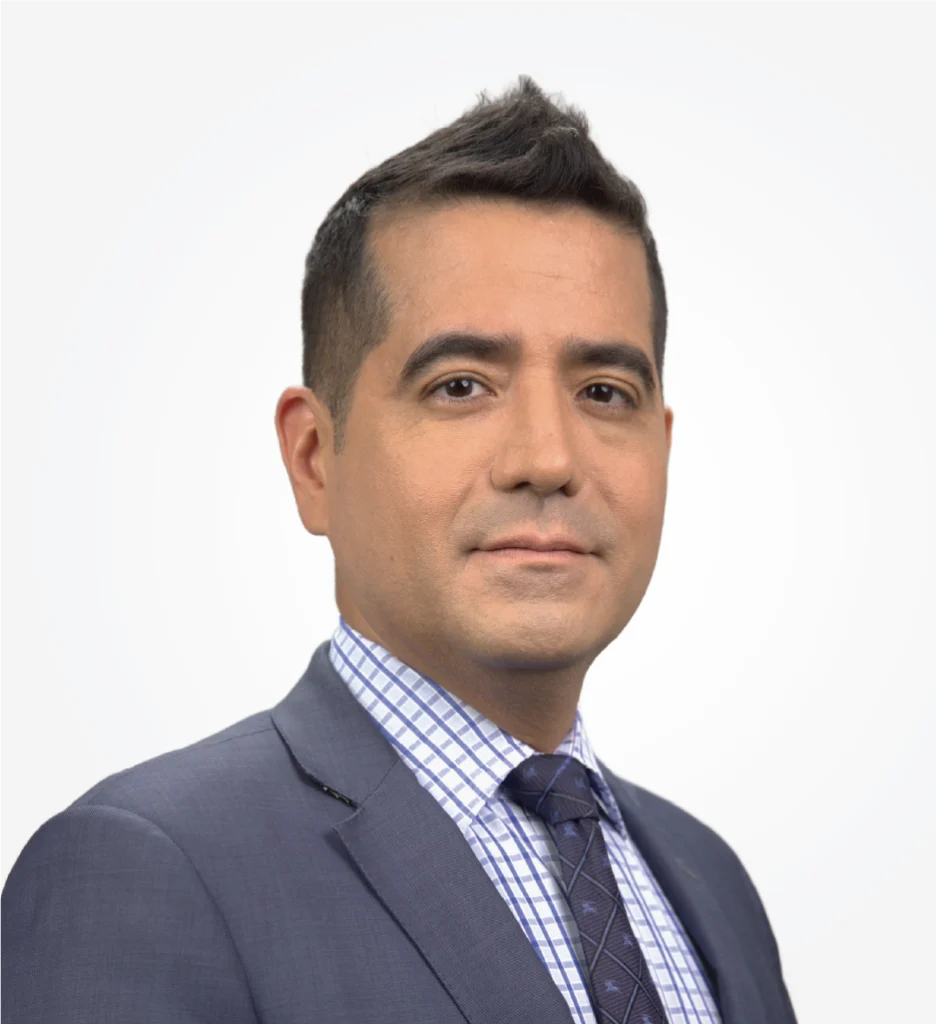As one of the smallest vehicles on the roads, a motorcycle does not offer the same level of protection as larger vehicles. In the event of an accident, the risk of injury is higher due to this lack of protection, and despite the skill and caution of many motorcycle riders, a single moment of another driver’s inattention or error can lead to devastating consequences.
Compared to car accidents, injuries from motorcycle crashes can be particularly severe, leading to long-term consequences or even fatalities. It is particularly important for drivers to follow laws to keep motorcyclists safe, but unfortunately, they often fail to do so, making them liable for a motorcyclist’s injuries.
If you have suffered injuries in a motorcycle crash, hiring a knowledgeable motorcycle accident attorney in Fairfax can make all the difference in securing the compensation you need to recover and move forward. They will know the motorcycle laws they must apply to your case to seek maximum financial recovery for your losses.
Laws Drivers Must Follow to Keep Motorcyclists Safe in Virginia

As drivers, it is our responsibility to ensure the safety of everyone on the road, including motorcyclists. In Virginia, there are several laws to protect motorcyclists and reduce the risk of accidents. These laws include requirements for wearing helmets, proper lane usage, and yielding the right of way.
By following these laws, drivers can help keep motorcyclists safe and prevent unnecessary accidents and injuries. When drivers violate safety laws, motorcyclists can suffer life-changing injuries.
If you have been in a motorcycle accident or have questions about the laws regarding driving and motorcyclists in Virginia, never hesitate to seek legal advice. Contact a motorcycle accident attorney near you to discuss your case and ensure you understand your rights and legal options.
Lane Usage - Sharing the Road Responsibly
Proper lane usage is one important aspect of keeping motorcyclists safe in Virginia. Motorcyclists have the same rights and responsibilities as any other driver on the road, and all drivers must be aware of their presence and give them the space they need.
When driving alongside motorcyclists, drivers must give a motorcycle plenty of space, just like other larger vehicles. Motorcycles have a smaller profile than cars, but this does not mean drivers should not allow ample space between vehicles. Additionally, drivers should always avoid weaving in and out of traffic or making sudden lane changes that can startle or endanger motorcyclists.
It is also important to check blind spots regularly, as motorcycles can easily hide in these areas. Drivers should always use mirrors and shoulder check before changing lanes or making turns.
Yielding the Right of Way
Yielding the right of way is a fundamental rule of the road that applies to all drivers, including motorcyclists. When approaching intersections, drivers need to yield to motorcyclists if they have the right of way. Failure to do so can lead to dangerous collisions and severe injuries.
Drivers should always check for motorcyclists before turning or entering an intersection. Motorcycles are smaller and may be harder to spot, so extra caution is necessary. If a driver is unsure about the right of way or who should yield, they should give the motorcyclist the benefit of the doubt and wait for them to pass safely.
Additionally, when merging or changing lanes, drivers must signal their intention ahead of time and make sure there is enough space for the motorcyclist to maneuver safely. Keep in mind that motorcyclists may be traveling at different speeds or filtering through traffic, so drivers need to stay aware of their presence and allow them to move safely on the road.
Adherence to Speed Limits
Speeding is a common factor in many accidents, including those involving motorcycles. In Virginia, speed limits are set to keep everyone on the road safe, including motorcyclists. Drivers must adhere to these speed limits and adjust their speed based on weather conditions and traffic flow.
Excessive speed reduces the time drivers have to react to unexpected situations, increasing the risk of collisions with motorcycles and other vehicles. Driving within the speed limits can help create a safer environment for motorcyclists and minimize the chances of accidents causing severe injuries or fatalities. Speeding not only increases the chances of hitting a motorcycle but can also increase the severity of the collision and resulting harm.
Safe Following Distance
The law requires maintaining a safe following distance for the safety of both motorcyclists and drivers. Motorcycles can stop faster than cars, and tailgating can lead to rear-end collisions that are particularly dangerous for motorcyclists.
To ensure a safe following distance, drivers should use the three-second rule. They should choose a fixed point on the road, like a sign or a tree, and count the seconds it takes for their vehicle to reach that point after the vehicle in front of them passes it. Ideally, they should allow at least three seconds between their car and the vehicle in front. This gives a driver enough time to react if something unexpected happens.
By maintaining a safe following distance, drivers can reduce the risk of rear-end collisions with motorcycles and create a safer environment for everyone on the road. Rear-end crashes are often minor with two cars but can be particularly dangerous for motorcyclists. This is because the force from behind often throws a motorcyclist forward off their bike, causing severe traumatic injuries.
Helmet Laws - Protecting Motorcyclists' Safety

Wearing a helmet is important for the safety of motorcyclists on Virginia roads. The state has enacted laws requiring all motorcyclists, regardless of age, to wear a helmet. This applies to both the driver and any passengers on the motorcycle. The helmet must meet the standards set by the U.S. Department of Transportation (DOT) and must be securely fastened under the chin.
Wearing a helmet can greatly reduce the risk of severe head injuries or fatalities in a motorcycle accident, but it cannot prevent all injuries. Drivers should never assume that motorcyclists are safe from harm simply because they have safety equipment. Further, motorcyclists should not assume their legal rights to compensation disappear if they were not wearing a helmet.
Understanding Motorcyclists' Vulnerability - Why Legal Support is Important
Motorcyclists are more vulnerable to injuries in accidents than people in enclosed vehicles. They lack the protective barriers of a car and are more exposed to the impact of a crash. Consequently, motorcyclists are at a higher risk of severe injuries or fatalities in accidents.
If you have suffered an injury on a motorcycle, always seek legal advice from a knowledgeable motorcycle accident attorney to protect your rights and ensure you receive fair compensation for your injuries and damages. A motorcycle accident lawyer can help you to handle the legal process, gather evidence to support your claim, negotiate with insurance companies, and represent your best interests in court if necessary.
Available Damages in Virginia Motorcycle Accident Case
A motorcycle accident can take a significant toll on a victim's physical, emotional, and financial well-being. In the aftermath of a crash, victims may be unable to return to work, carry out everyday activities, and face extensive medical bills.
Depending on the severity of physical damage a motorcycle accident causes, victims may be entitled to various types of damages, including economic and non-economic.
Economic damages are tangible losses that result from the accident and can be assigned a specific dollar value.
Some examples of these damages include:
- Medical expenses: This includes hospital bills, ambulance fees, surgeries, medications, rehabilitation costs, and any other medical treatments related to the accident.
- Lost income and wages: This is reimbursement for income lost due to the inability to work during recovery, including potential future earnings impacted by the injuries.
- Property damage: If the motorcycle is damaged in the accident, the victim can recover the cost of repairs or the vehicle's fair market value if it is deemed a total loss. Accident victims may also recover compensation for any other personal property damaged.
- Future earning capacity: In some cases, a motorcycle accident may result in long-term or permanent disabilities that prevent the victim from returning to their previous occupation. In such instances, they may be entitled to compensation for the loss of future earning potential.
In addition to economic damages, victims may also be eligible for non-economic damages. Unlike economic damages, non-economic damages are more subjective and aim to compensate accident victims for the physical pain and suffering they've experienced.

- Pain and suffering: This refers to the physical pain, discomfort, and emotional distress caused by the accident and subsequent injuries.
- Loss of enjoyment of life: If the accident has resulted in a significant impact on the victim's ability to participate in activities they once enjoyed, they may be entitled to compensation for the impact the accident has on their daily lives, relationships, and ability to engage in recreational activities.
- Emotional distress: Motorcycle accidents can be traumatic experiences, leading to anxiety, depression, and other mental health issues. Victims may seek damages for the emotional and mental toll the accident takes on their overall quality of life.
- Permanent disability and disfigurement: Victims who suffer permanent disabilities may experience significant limitations in mobility, independence, and their ability to work or perform daily tasks. Disfigurement, such as scarring or facial injuries, can also lead to feelings of self-consciousness, embarrassment, anxiety, and a reduced sense of self-esteem.
In the tragic event of a fatal motorcycle accident, eligible surviving family members may be eligible to recover the following types of damages:
The following types of damages may be available:
- Funeral and burial expenses: When a loved one is tragically taken away, the ensuing funeral and burial expenses can be a significant financial burden. Fortunately, Virginia law allows for the recovery of these costs in a wrongful death claim. This includes funeral home services, transportation, cemetery plots, caskets, and other funeral-related expenses.
- Loss of financial support: Surviving family members may be entitled to compensation for the income their loved one would have provided had they lived. This includes income the victim should have likely earned in the future and contributions toward household expenses, education, or other financial needs.
- Loss of companionship and guidance: The loss of a loved one can leave surviving family members without the guidance, affection, and emotional connection the victim provided. Damages may be available for the pain and suffering associated with the loss of companionship or parental guidance.
- Pain and suffering: Compensation may apply for the physical pain, emotional distress, and suffering experienced by the deceased before their death.
Punitive damages may be available in cases involving extreme negligence or intentional misconduct. Unlike compensatory damages (economic and non-economic), these damages do not reimburse the victim for specific losses but instead punish the at-fault party for their egregious behavior. In Virginia, the cap on punitive damages is $350,000.
It's important to note that each motorcycle accident case is unique, and the available damages may vary based on the specific circumstances of your case. A seasoned Virginia motorcycle accident lawyer can identify the damages you may recover to help rebuild your life and move forward.
What Is the Statute of Limitations for Motorcycle Accident Claims in Virginia?
Virginia's statute of limitations sets a strict time limit for bringing a legal claim after an accident. Generally, the statute of limitations for motorcycle accident claims in the state is two years from the date of the accident. Failure to file within this deadline can result in the dismissal of your case, leaving you without the opportunity to seek compensation for your injuries and damages.
There are some exceptions to the two-year rule, and your specific circumstances may impact the deadline for filing your claim. For this reason, you should consult with a motorcycle accident lawyer who can assess your case and determine the applicable statute of limitations for your particular situation.
Schedule a Free Consultation With a Trusted Virginia Motorcycle Accident Lawyer Today

By scheduling a free consultation with a trusted Virginia motorcycle accident lawyer today, you can take the first step toward getting the compensation you deserve. Experienced attorneys understand the challenges of motorcycle accident cases and have the resources to build a strong case for you.
Contact a trusted Fairfax personal injury lawyer today to schedule your free consultation. They will listen to your story, assess your case, and provide you with the guidance and support you need to pursue justice and fair compensation.
